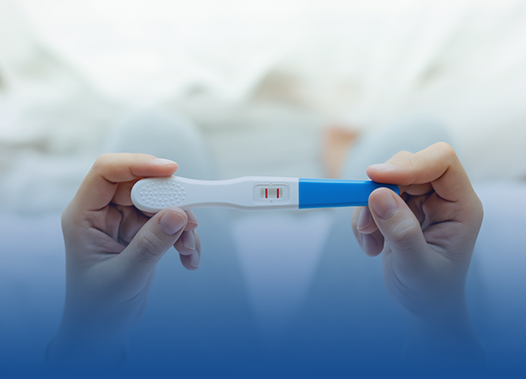Patient Education
1st trimester pregnancy: What to expect?

Congratulations you are pregnant.
The first trimester of pregnancy can be overwhelming. Understand the changes you might experience and how to take care of yourself during this exciting time.
During the first few months of pregnancy, amazing changes happen quickly. This part of pregnancy is called the first trimester. Knowing what physical and emotional changes to expect can help you face the months ahead with confidence.
Your body
Your first symptom of pregnancy might have been a missed period. But you can expect other physical changes in the coming weeks, including:
- Tender, swollen breasts. Soon after you become pregnant, hormonal changes might make your breasts sensitive or sore. You'll likely have less discomfort after a few weeks as your body adjusts to hormone changes.
- Upset stomach with or without vomiting. Feeling like vomiting during pregnancy is known as morning sickness. It's common, and it can strike at any time of the day or night. Morning sickness often begins between 4 to 9 weeks into a pregnancy. This might be due to rising hormone levels. To help relieve an upset stomach, try these tips:
- Avoid having an empty stomach. Eat slowly and in small amounts every 1 to 2 hours.
- Choose bland foods that are low in fat. Some examples are bananas, rice, applesauce and toast. Include lean proteins such as low- or no-fat dairy, nuts, nut butters and seeds.
- Foods that contain ginger might help settle your stomach.
- Stay away from foods or smells that make your upset stomach worse.
- Sip plenty of cold, clear fluids.
Call your healthcare professional if your upset stomach or vomiting becomes worse.
- More urination. You might find yourself urinating more often than usual. The amount of blood in the body increases during pregnancy. This causes the kidneys to process extra fluid that ends up in the bladder.
- Fatigue. It's common to feel very tired during early pregnancy as levels of the hormone progesterone rise. Rest as much as you can. Take a 15-minute nap during the day if you can. A healthy diet and exercise might boost your energy.
- Food cravings and dislikes. When you're pregnant, your sense of taste might change. Some smells may seem stronger too. To help, try using a fan when you cook. Ask a family member or partner to take out the trash if possible. Like most other symptoms of pregnancy, food preferences are due to hormone changes.
- Heartburn. Pregnancy hormones slow down the digestion of food. The hormones also relax the valve between the stomach and esophagus. This can let stomach acid leak into your esophagus, causing heartburn. To prevent heartburn:
- Eat small, frequent meals.
- Sip drinks in between meals.
- Don't eat fried foods, citrus fruits, chocolate or spicy foods.
- Don't lie down right after a meal.
- Try not to eat or drink within a few hours of going to bed.
Talk with your healthcare professional if these steps don't give you enough relief. Safe medicines are available for heartburn.
- Constipation. High levels of the hormone progesterone can slow the movement of food through the digestive system. This can cause fewer or painful bowel movements. So can the growing uterus, which may put pressure on the bowels.
To prevent or relieve constipation, eat plenty of foods with fiber.
Your emotions
Pregnancy might make you feel delighted, anxious, excited and exhausted — sometimes all at once. Even if you're thrilled about being pregnant, a new baby can add stress to your life.
Prenatal care
You might choose to get care from healthcare professional during your pregnancy.
Your first pregnancy checkup focuses on:
- Checking your overall health.
- Finding any risk factors that could affect the health of you or your baby.
- Figuring out how far along the pregnancy is, also called your baby's gestational age.
You'll likely have checkups every four weeks for about the first 28 weeks of pregnancy. You may need checkups more or less often. It depends on your health and medical history. During these appointments, talk about any concerns you might have about pregnancy, childbirth, or life with a newborn. Remember, no question is silly or trivial — and the answers can help you take care of yourself and your baby.